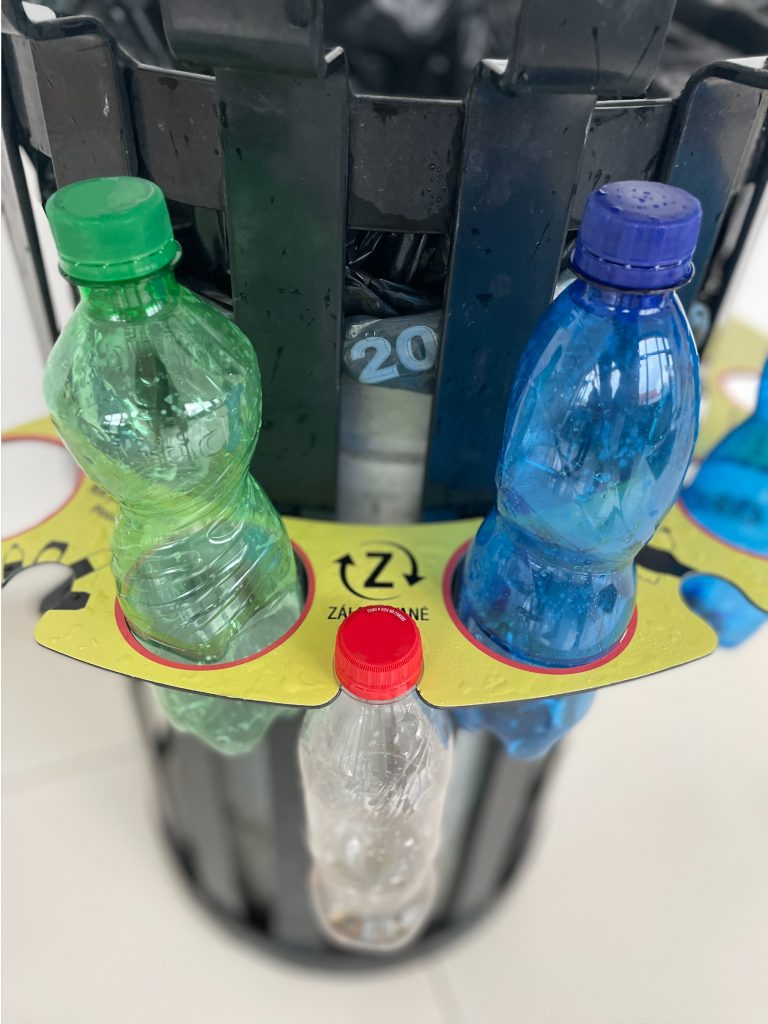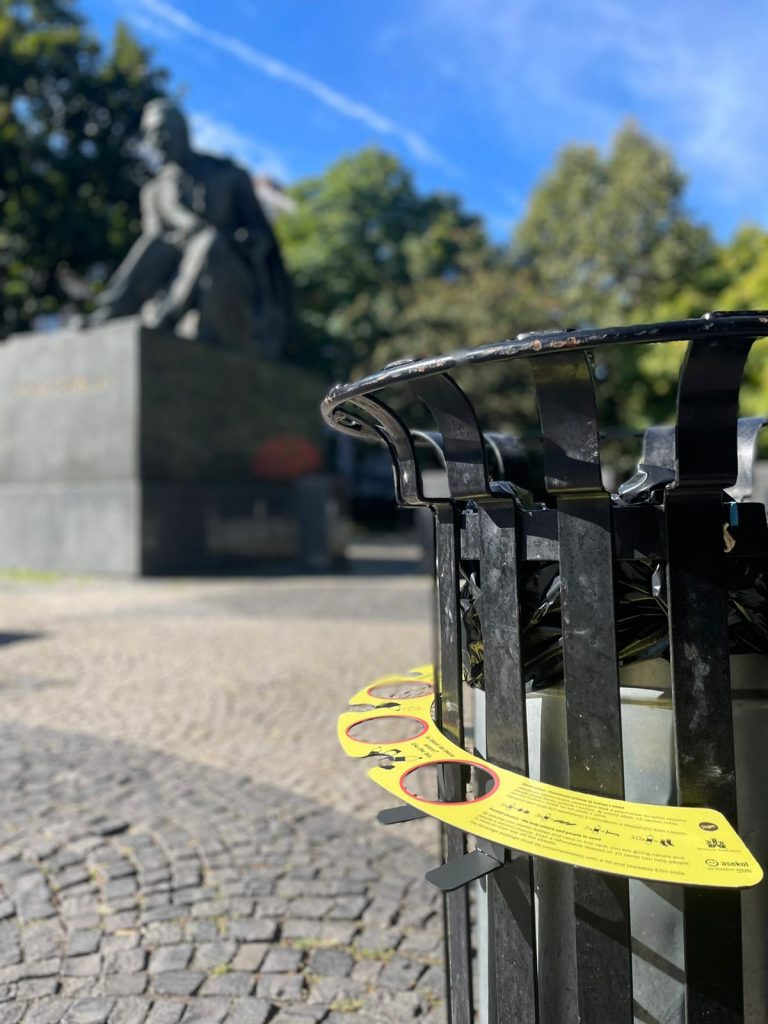The Second Chance project will help the streets of the Old Town twice. It will increase order and make it easier for homeless people to access backed-up beverage container.
26. 9. 2022
The backup of plastic bottles and cans of beverages was introduced in Slovakia at the beginning of 2022. Although, according to statistics, Slovaks sort fairly responsibly, some bottles and cans still end up in rubbish bins. Homeless people who collect bottles and cans from rubbish bins use this to make some extra money. The problem is that backed-up plastic bottles and cans are often found in collection bins full of dirty waste or even glass.
Littering, i.e. waste dumped freely in nature, is also a problem in many countries, including Slovakia. According to information from the field, a significant part of the freely dumped waste also consists of backed-up beverage containers, which can take hundreds of years to decompose in nature, thus becoming a threat to the environment.
Following the example of Scandinavian countries, ASEKOL SK together with the district of Bratislava-Staré Mesto have launched a project called Second Chance, which aims to contribute to the reduction of littering and at the same time to protect homeless people. “Second Chance is a project that is somewhat atypical for our company. Since the introduction of the deposit system, selected PET bottles and cans have been separated from sorted collection and routed for recycling through deposit machines. However, even so, some of the backed-up packaging is visible in the form of littering. As a producer responsibility organisation, we have experience in waste collection, and thanks to a good example of practice from abroad we also decided to implement a similar project,” the managing director Ronald Blaho describes the origin of the project.
Despite the good results of PET bottles and cans backup, a lot of PET bottles and cans end up unreturned. In practice, this means that not only is some of the backed-up packaging not recycled, but in addition some of the advance payments for this packaging remain unpaid. “People in need can, thanks to the collected back-up packaging, improve their financial situation and pay, for example, for accommodation,” says Dominika Kráľová, programme coordinator of the civic association Vagus, which is involved in informing the affected groups.
The launch of the pilot phase of the Second Chance project took place at the beginning of September. Special “deposit hoops” were placed on the bins in the busiest parts of the capital, in the centre of the Old Town. The hoops are used to store bottles and cans, which can then be easily and safely taken out and returned to the store. The slots for storing bottles and cans are precisely designed so that the containers do not fall out spontaneously. One special hoop provides space for a total of 9 PET bottles and cans.
“We are delighted to be part of this project. We believe it will help marginalized groups and at the same time keep the Old Town as clean as possible,” said Mayor of the Old Town Zuzana Aufrichtová. “We have placed special hoops on the bins on the Vajanského embankment, on the promenade from the passenger harbour to the SNP bridge, and on Hviezdoslavovo Square. These are places where a lot of people move around, including tourists, many of whom have no idea about backing up bottles and cans in Slovakia, which is why they throw them away,” added Z. Aufrichtová. The pilot phase includes five special bins.The hoops are fixed at the top of the bin so that they can be easily removed in the event of damage. In addition to the instructions, which are in both Slovak and English, there are also pictograms showing how to use the hoop.
Anyone who is not interested in returning backed-up PET bottles and cans can use special bins when walking through the centre of Bratislava to dispose of these containers. They will become easily accessible and will not only help people in need, but will also contribute to cleaner streets in the capital.

